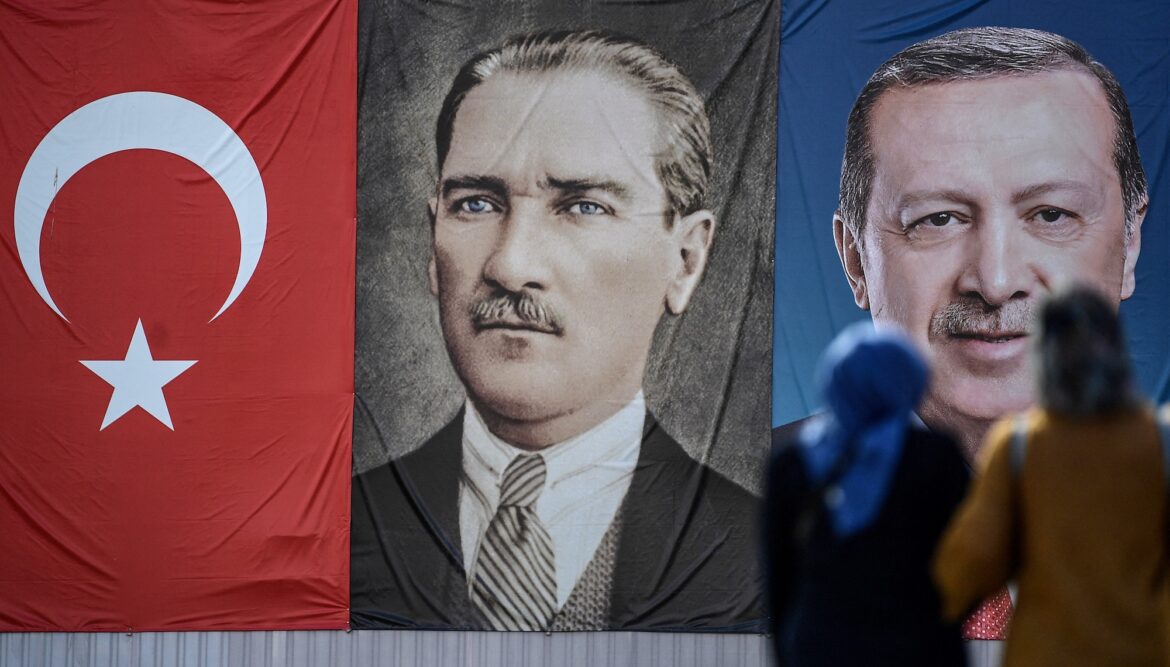Turkey is experiencing the most severe predicament since the establishment of its republic by Mustafa Ataturk on October 29, 1923. Despite the coups that struck the Turkish state over the past hundred years, these were going one-way in terms of their causes and desire for more freedom.
These coups were between parties and powerful personalities trying to capture power to see their programs enacted. However, the current situation involves a weak leader attempting to impose his vision without a clear political program and with a strong but hungry army. The dangerous aspect of this predicament is that the opposition to the weak leader’s authority is led by populists who also lack a political program, aside from their ambition to gain power. This is reminiscent of the early days of the Turkish state when Sultan Abdul Majid II, the last Ottoman sultan, was overthrown. He was a weak sultan with a strong but hungry army.
At that time, the coups had no program or clear aspirations other than overthrowing the Sultanate, leading to the loss of Ottoman geography. Now, Turkey is witnessing similar conditions. Turkey’s current predicament is multifaceted:
1. Political Instability:
– Every event demonstrates that the Turkish president is a weak leader. The title “beloved sultan” among his supporters seems more like a curse, likening him to the deposed Sultan Abdul Majid.
– Since 2016, political debates have torn Turkey apart, creating an unstable environment where even a small rumor can ignite internal conflict and riots, undoing months of government efforts to stabilize the economy. NATO fears that it will have to support the military establishment, which is also weakened by this instability.
2.Economic Challenges:
– Investment and loan holders depend on the country’s development, which in turn relies on cheap labor and a favorable investment environment for small and medium enterprises (SMEs). In 2022, 3.773 million companies operated in Turkey’s industrial and service sectors as SMEs, accounting for 99.7% of all companies. They represented 70.6% of employment, 47.5% of personnel costs, 36.3% of production value, and 36.4% of value added at the cost of factors. Any political or economic tension could have a significant impact on the Turkish economy because these companies are fragile and lack the flexibility to withstand market changes.
– Since 2016, Turkey has been plagued by artificial crises resulting from unclear political debates, impacting internal purchasing power and leaving these projects in crisis. The opposition has not sought to remedy the situation but has continued to fuel it, using manpower, especially Syrian, and tourism, particularly Arab, as leverage. This has led to the closure of companies that constitute 32% of Turkish exports, further fueling inflation. This inflation has reached record numbers, directly undermining President Erdogan’s plan to raise the growth rate to 4% and reduce inflation to 33% during 2024.
3.Investment Environment:
– Successive events have dispelled any notion of Turkey as an attractive investment environment. Populist attacks on markets and trade routes, particularly in Syrian regions and Gulf markets, have harmed the Turkish economy. Syrian opposition forces threaten Turkish trucks, the backbone of trade, and Gulf markets have been avoiding Turkish products since 2020. Turkish politicians have not addressed these issues, allowing them to worsen.
4. Legal Impediments:
– Turkey’s negotiations with the European Union and financial institutions have relied on the existence of an independent legal authority. However, recent events have shown that there is no reliable judicial or legal authority in Turkey to protect investments and assets. This undermines long-standing negotiations to join the European Union, which requires an independent judiciary that can protect people and assets without ethnic discrimination or corruption.
5. Intelligence Weaknesses:
– Turkey’s intelligence apparatus has become like marionette puppets driven by the intelligence of the weak region. This affects the country’s ability to handle global intelligence challenges. The situation is further complicated by the interests of its officers, the failure to manage the northern Syria file, and the political fluctuations in Turkey’s international positions. Turkey tries to claim pragmatism, but this hides its intelligence weaknesses.
6. Moral Dilemmas:
– Turkey was once considered a rising regional and international power due to its soft power. However, dual statements and weak, inconsistent positions have eroded this power. Turkey has lost the benefits of its investment in soft power and is no longer viewed as a reliable international player.
Between these predicaments, Turkey’s reality is revealed as fragile. This situation may affect Turkish geography, diminishing its role as a reliable international player and reshaping its regional and international position.


